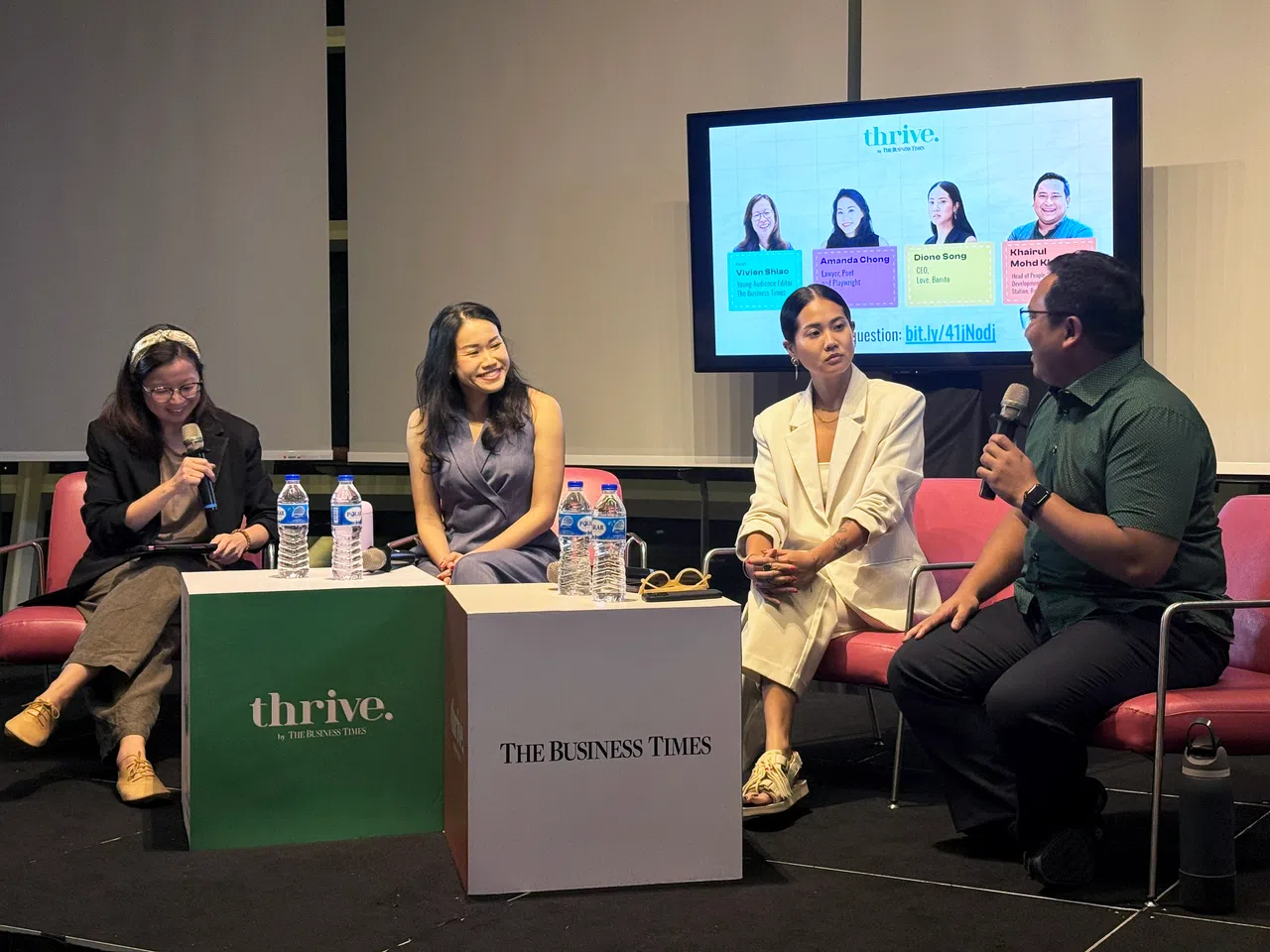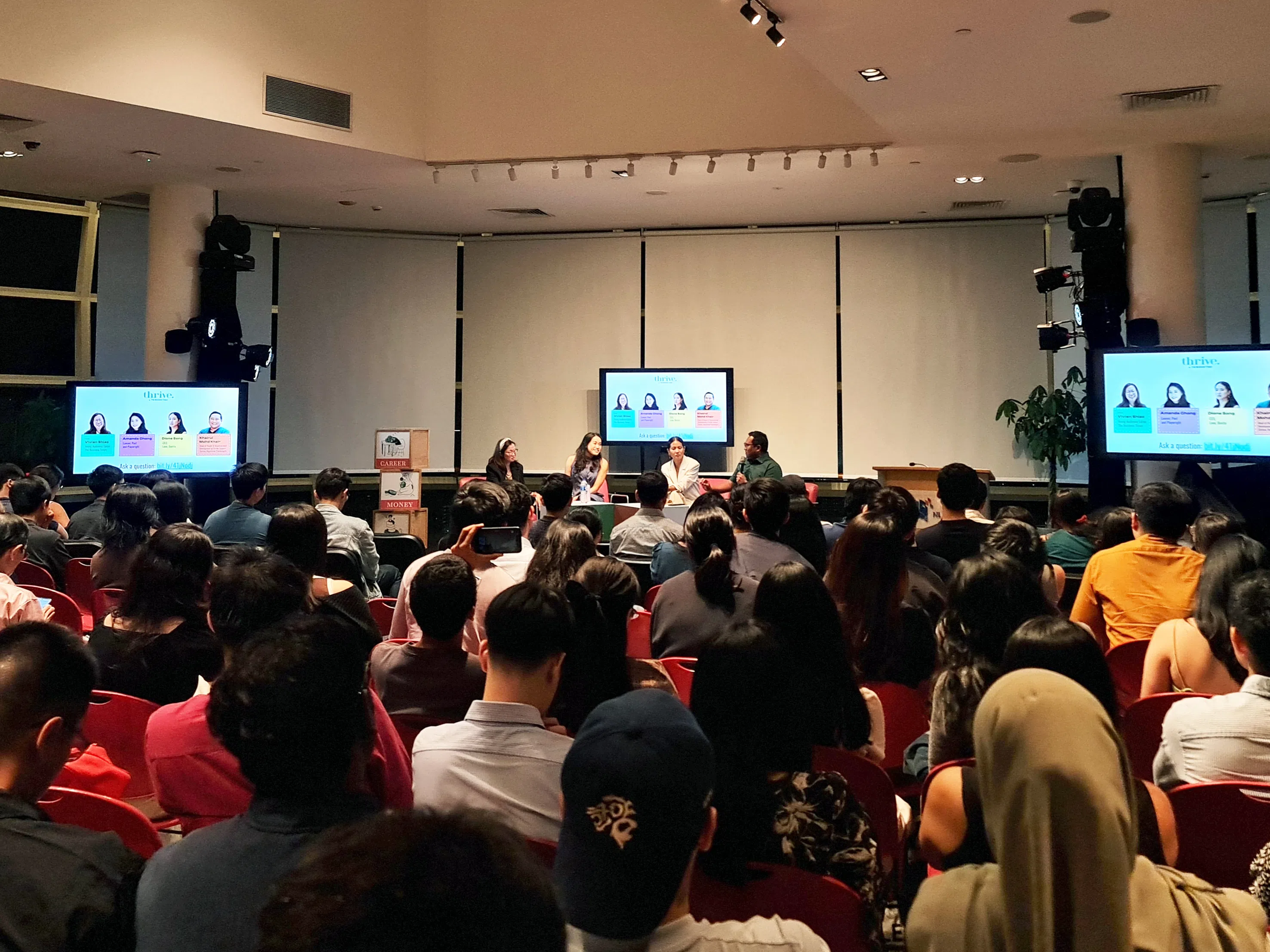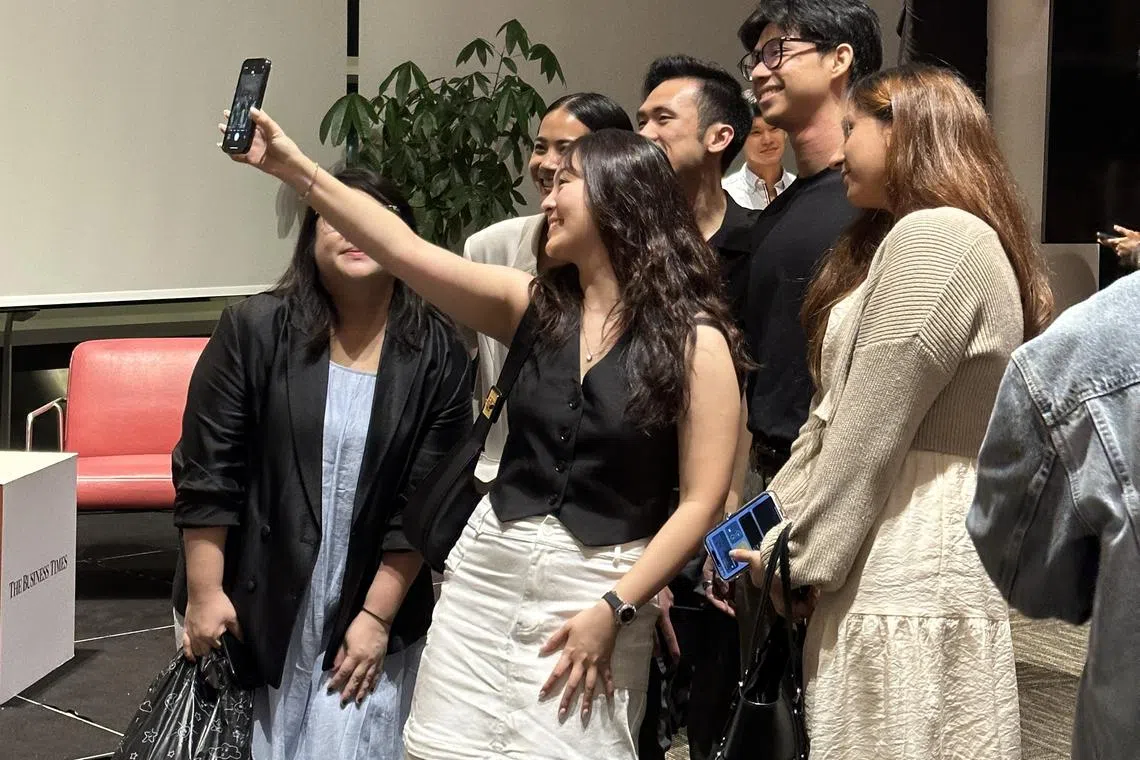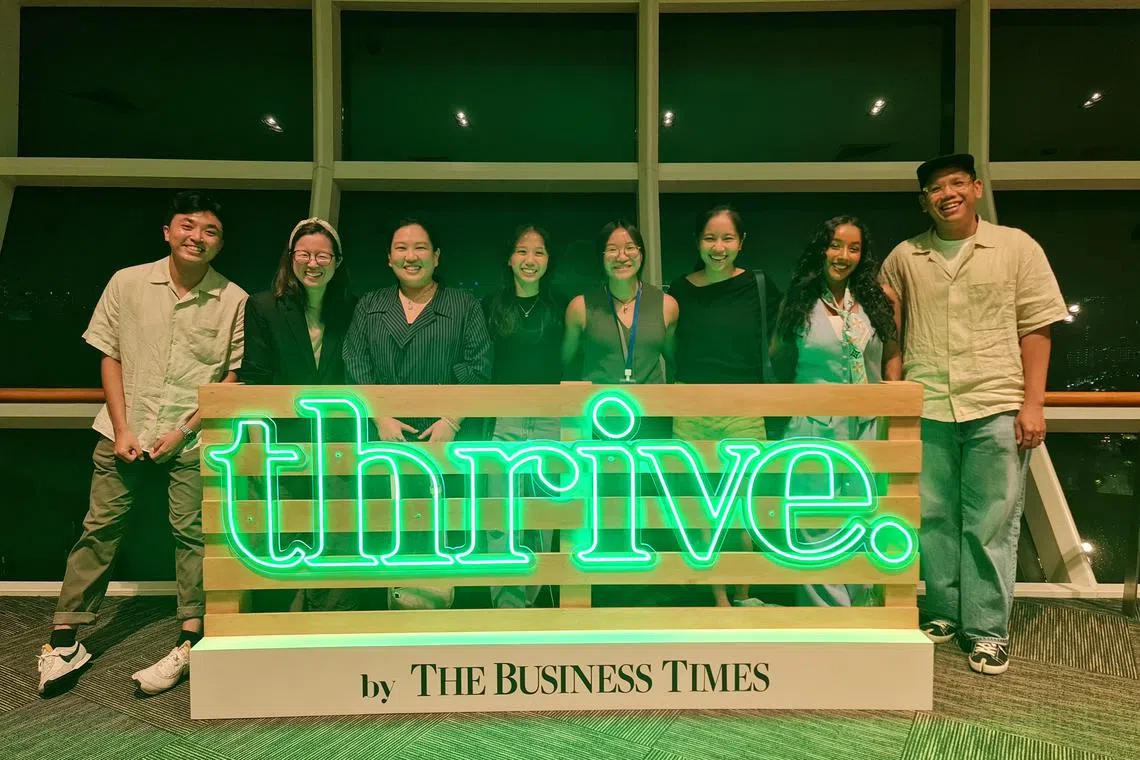🌠 Are you working to find or fund your dreams?

Straight to your inbox. Money, career and life hacks to help young adults stay ahead.
- Find out more and sign up for thrive at bt.sg/thrive
🔥 Real talk
At thrive’s fireside chat last Thursday, titled “Finding the right career to thrive in”, we invited three guest speakers to share lessons from their career journeys and how they find meaning at work.
They were:
- Amanda Chong, lawyer, poet and playwright
- Dione Song, chief executive of Love, Bonito
- Khairul Mohd Khair, head of people and organisational development at the non-profit Stroke Support Station
Here are some edited excerpts from the panel discussion and question-and-answer session.
✍️ Should you follow your dreams or choose a stable career?
Chong: Law and the arts – for me, each side is a refuge from the other. Sometimes, when one side gets too much, I’m so glad that I have another avenue to express my emotions.
If I were a full-time artist, the reality is that I might have to find other streams of income doing work that I don’t really feel like doing. I’m very glad that I have the privilege of doing artistic work that I want to create without the pressure of it being my source of income.
Having said that, it really just means that I’m a lot less prolific. There’s always going to be a trade-off.
Navigate Asia in
a new global order
Get the insights delivered to your inbox.
Song: I did investment banking and sales before going to the start-up world. At my first job at Zalora, my pay was literally halved. I had to decide on trade-offs back then – a higher paying job and being a cog in a machine, or working in a start-up with a bigger job scope and working longer hours.
But I genuinely loved what I did, and that was the decision that I made back then – to take the plunge.

😪 What advice would you give young adults struggling to find meaning at work?
Khairul: People who can find meaning in their work are very lucky, especially in today’s world. What I’m beginning to realise is that, perhaps, work is not the place to find meaning but the place to fund your meaning.
SEE ALSO
And that’s fine. For me, fortunately, in my career, I’ve always found jobs that I could find meaning and purpose in. And I think that’s a very privileged position.
Chong: We shouldn’t make our jobs our entire identity. I don’t think it’s healthy for anyone to put so much weight on their work performance because there’s just too much pressure.
When something that happens in a meeting goes into your sense of self-worth – I think we should always see ourselves as full human beings and not as units of labour.
But I also think you can always find meaning in the interpersonal connections at the workplace. You could be doing anything, but if you’re kind to your colleagues, take time to mentor your colleagues and make someone’s day, I think that’s meaningful as well.

🧒 What advice would you give your younger self?
Song: Just do it. When opportunities come, jump both feet in, head-first. Really seize it and commit. A lot of times, it’s the regret that makes us bitter, discontent and not present in the moment.
I love this quote by British artist David Shrigley: “When life gives you a lemon, you must eat the lemon. All of it, including the skin.”
Don’t complain; just seize it and make the best of it. I do believe that opportunities will come, and people will see your talent over time and be willing to pay for it.
Khairul: My mentor told me this: If you want to do what everyone else is doing, you better be the best. But if you do what no one else is doing, you can just be okay at it and people will still come to you.
🌈 How do you find your calling?
Khairul: Sometimes you only know your true calling when you start doing it, when you start doing something that you never thought you would enjoy. But as you do, you begin to appreciate the work and, eventually, you grow into that role, and it becomes your calling.
Song: Finding your calling is very hard. I think we all kind of know what we don’t like, and we go through a process of elimination.
If you’re curious about an opportunity, why not just try? Life is too short to always wonder, regret and think “what if”.
And if you don’t like it, know when to call it quits.

⌛ How do I know that I should change careers or move to a new company?
Song: Honestly, I’ve seen so many friends over the years who are dragging their feet to their workplace.
Life is too short to live like this. But on balance, it’s also about having grit. Of course, it’s not every day that I’m like, “Woo! Let’s go to the office!” There will be ups and downs.
But if you’re dreading work for a long period of time, then maybe it’s time to find something else. And when it comes to life and work, many decisions are a two-way door. You can jump into a new industry, and if you don’t like it, switch.
🧓 How do I find a mentor?
Khairul: I’ve seen two kinds of mentors: formal mentors you find through mentorship programmes and informal mentors such as previous bosses that I still meet up with.
Formal mentors are all about access: access to knowledge, access to their network and knowing what things look like at a job.
Informal mentors are the ones who won’t hold back. They’ll tell you you need to get your shit together.
So keep in touch with previous bosses with whom you have a good relationship. That one coffee session you have once a year can be more transformational than 12 formal mentoring sessions.

TL;DR
- It’s rare to find meaning at work. Sometimes, work can just be a place to fund your life’s meaning
- We shouldn’t make our jobs our identity. We’re human beings, not units of labour
- You may not feel like a job is your true calling until you grow into that role and start appreciating the work you do
- Don’t be afraid to take on new career opportunities. If it doesn’t work out, you can always quit and try again
Decoding Asia newsletter: your guide to navigating Asia in a new global order. Sign up here to get Decoding Asia newsletter. Delivered to your inbox. Free.
Copyright SPH Media. All rights reserved.



